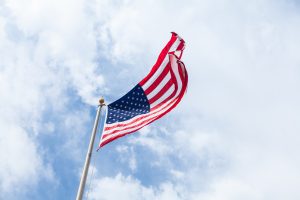It seems often too easy to push aside the importance of Agriculture. There seems to be the belief that Ag is a non-essential part of our country and economy, or somehow an “outdated” method of making a living.
Yet our country was built upon Ag and thrives upon Ag still. Ag was an intrinsic part of the fabric of this nation, and that can be clearly seen just looking back at some of our Founding Fathers. Yes, these lawyers, generals, merchants, and inventors were also Farmers or had strong roots to rural America and Agriculture.
And in some cases, our founding Fathers weren’t just revolutionary idealists of democracy, but they were also revolutionary idealists of Agriculture. George Washington, John Adams, Thomas Jefferson, and James Madison truly believed that the true path of the nation lay in small scale family farms dotting the country. They believed that a strong America was an agrarian America, and they weren’t wrong. It’s definitely a huge piece of the puzzle. (A debate even more polarized between Thomas Jefferson and Alexander Hamilton )
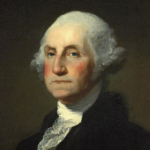
George Washington himself cultivated more than 3000 acres of farmland, and even during war he made sure to keep up with his estate. His first crop being, of course, tobacco, but eventually he became a wheat grower among other rotational crops.
“I had rather be on my farm than be emperor of the world.” – George Washington
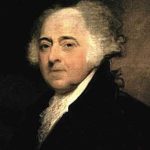
John Adam grew corn, rye, wheat, oat, barely, and even kept livestock, despite his formal upbringing and education at the time. And he would later say that he often preferred the lifestyle of a farmer over that of being a lawyer.
“I begin now to think all time lost that is not employed in farming.” – John Adams
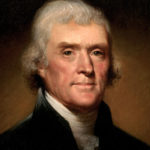
Thomas Jefferson is probably the most notable of them all, as well as his Monticello estate. Jefferson has been accredited to introducing more than 30 varieties of eighty-nine species of vegetables and herbs and 170 varieties of the finest fruit varieties known at the time. He even gets a few culinary credits such as Mac & Cheese and Ice Cream! Monticello was a true revolutionary American garden.
“I think our governments will remain virtuous for many centuries; as long as they are chiefly agricultural.” – Thomas Jefferson
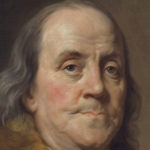
And how can we not mention Ben Franklin, who created the Farmer’s Almanac among other publications as well as inventions
“There seem to be but three ways for a nation to acquire wealth. The first is by war, as the Romans did, in plundering their conquered neighbors. This is robbery. The second by commerce, which is generally cheating. The third by agriculture, the only honest way, wherein man receives a real increase of the seed thrown into the ground, in a kind of continual miracle, wrought by the hand of God in his favor, as a reward for his innocent life and his virtuous industry.” – Benjamin Franklin
Not just the founding fathers, but the interest in Agriculture persists in our political leadership, and some of our presidents with a history in Ag would include James Monroe, who was a tobacco farmer just adjacent to the Monticello; John Tyler, another farmer turned lawyer; Abraham Lincoln, who grew up on a midwest farm; Ulysses Grant, who even tried his hand at farming; Harry Truman, who gave up a lucrative career in banking for farming, before his adventure into politics; and let us not forget Jimmy Carter, our friendly peanut farmer.
So as we celebrate the birth of a nation, let us not forget the importance of Agriculture in that birth, abd the importance of Agriculture today. Because when you look at that flag, farming is what you are seeing in the background of those starts and stripes.
Charlie A Hice


